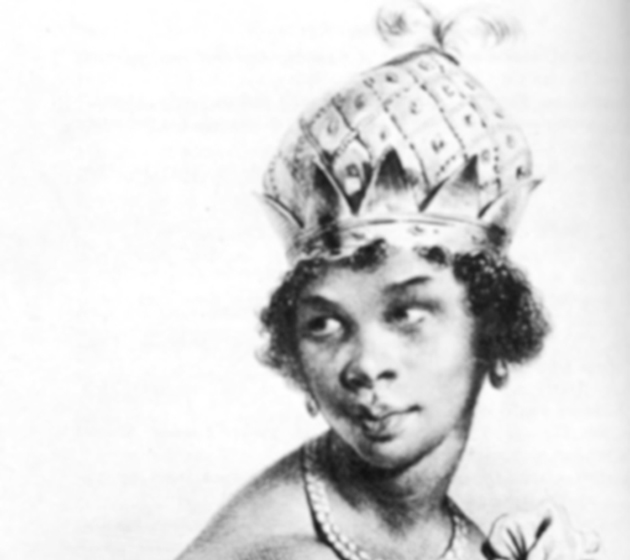The legacy of Africa’s unsung women warriors

Dr Sekai Nzenza on Wednesday
“SAKA, Sis, makazowana ma equal rights aya?” Piri asked, meaning, did I ever achieve equal rights with men. “Is that what Sis wanted?” my niece Shamiso asked, not looking at me but gazing at a photo of an African woman carrying a baby on her back, a big bucket of water on her head and a hoe in one hand and a bundle of vegetables in the other. She lifted the page and showed it to everyone.
“Village women suffer for sure. This is why I never wanted to live in my husband’s village and suffer like this,” she said.
“We women have always been downtrodden for sure,” said Shamiso as she sat lazily under the village mulberry tree. It was a blistering hot day with that kind of October heat that you feel when the rains are near. We were shelling peanuts for planting. Our neighbour Jemba, my brother Sydney, Piri and a couple of other village guys sat on stools next to us, drinking village brew.
Piri was secretly drinking canned cold beer that she had poured into a mug. She did not want to share her cold beer from the cooler box with Jemba and the others.
Shamiso read from a magazine whose pages had been ripped off by Jemba for use as cigarette papers. But the article on the plight of African women in the old New Internationalist magazine was still intact.
There was a time when I used to read that magazine and collect copies for my brother Sydney so he could cut pictures as teaching aids for his students at St Columbus’s School. But that was many years ago, when I was a young student involved in every cause, from anti-apartheid, Green Peace, anti-nuclear, women’s rights and animal rights.
I tried to stop eating meat but that only lasted three days. But I embraced the Western feminism and marched at rallies alongside many European women and others from Latin America and America in support of equal rights between men and women.
“Munhu wemukadzi, haana kumbo- bvira aita chinzvimbo chinesimba,” said Jemba, meaning a woman has never held a position of power in society. He ripped off another page from the New Internationalist and rolled his tobacco. My brother Sydney, being the schoolteacher that he is, said Jemba has got it all wrong. There was a time when African women held positions of power but this is not documented in history enough nor is it taught in schools.
Sydney said there was history of African women not taught in the classroom. Sydney stood up, went into the house and pulled out a book on African people and history. I recalled bringing this book from America some years before. Sydney flipped through the pages and, smiling, he launched into a history lesson and we listened. Even Piri put her can of beer under her skirt and kept on nodding.
He said, among the most remarkable freedom heroes who fought against European colonialism are Queen Nzinga of Angola and Mama Asante Waa of Ghana.
Sydney said Queen Nzinga Mbandi lived during the period of the Atlantic slave trade and the rise of Portuguese traders.
She rose to power as the leader of the Mbundu people in what we know today as modern-day Angola.
She was a great leader, ruler, military strategist and strong opponent to the slave trade.
Before she became queen, Nzinga was the envoy for her brother, King Angola, at various peace conferences with Europeans.
In 1617, the Portuguese slave traders established a fort and settled at Luanda, deliberately encroaching on Mbundu land. Thousands of Ndongo people were taken as prisoners. The king then sent his sister Nzinga Mbandi to negotiate a peace treaty with the Portuguese Governor Joao Corria de Sousa in 1622 to end the hostilities with the Mbundu people.
It was at this peace signing conference that Nzinga made herself known for refusing to accept the Portuguese as superior to her and her people.
In preparation for the conference, the Portuguese had a chair for the governor only. They placed a floor mat expecting Nzinga to sit down in subordination to him during negotiations.
The Queen had a contemptuous smile, while her attendants moved around. They quickly rolled out a beautifully designed royal carpet they had brought before Nzinga, after which one of them went on all fours and expertly formed himself into a “royal throne” upon which the princess sat easily without being a strain on her devoted follower.
In 1627, after forming alliances with former rival states, she led her army against the Portuguese, initiating a 30-year war against them. To build up her kingdom’s martial power, Nzinga offered sanctuary to runaway slaves and Portuguese-trained African soldiers. She also stirred up rebellion among the people still left in Ndongo, now ruled by the Portuguese.
At the age of 60 years, Queen Nzinga personally led troops in battle. She ruled for 39 years. Despite repeated attempts by the Portuguese and their allies to capture or kill Queen Nzinga, she died peacefully in her eighties on December 17, 1661 in Matamba. After her death, the Portuguese accelerated the occupation of the interior of South West Africa and engaged the expansion of the Portuguese slave trade.
Today Queen Nzinga is remembered in Angola for her political and diplomatic acumen, great wit and intelligence, as well as her brilliant military strategies.
Flipping through more pages, Sydney found a story about women in Ghana. He said in Ghana, there was Yaa Asantewaa, an Ashanti queen who lived from 1832 to October 17, 1921. She was the queen mother of Ejisu of the Ashanti Empire which is part of modern-day Ghana. In 1900 she led the Ashanti rebellion known as the War of the Golden Stool against the British imperialists.
In March 1900 the European Governor of the Gold Coast, Sir Frederick Hodgson, demanded to sit on the Golden Stool throne. Such a demand belittled and showed no respect for the Asante sovereignty. The Council of Asante Chiefs was outraged by the arrogance of the British Governor.
They met to oppose the British imposition on that demand. At the same time they also called for the return of the Prempeh I their King who had been exiled on the island of Seychelles. The chiefs could not agree on the way forward. According to Ivor Agyeman Dua, an expert on African history, Yaa Asantewaa stood up and asked the English interpreter to translate to the Governor, that “tomorrow ghost widows would get husbands”.
The Queen was angered by the weakness in the men. The Queen then declared that if the chiefs were such cowards, then they should exchange their loin cloths with her underwear.
Sydney paused and quoting a passage, he said: “I will read you the Ghanaian Queen’s speech. Here it goes:
“Now I see that some of you fear to go forward to fight for our king. If it was in the brave days of Osei Tutu, Okomfo Anokye, and Opoku Ware, chiefs would not sit down to see their king taken away without firing a shot. No European could have dared speak to the chiefs of Asante in the way the governor spoke to you this morning. Is it true that the bravery of Asante is no more?
“I must say this: if you, the men of Asante, will not go forward, then we will. We, the women, will. I shall call upon my fellow women. We will fight! We will fight till the last of us falls in the battlefields.”
The Queen took on leadership of the Asante Uprising of 1900, gaining the support of some of the other Asante royal family. She was able to mobilise all the forces together and on March 30 1900 she led the troops to fight the British in the sixth and final Asante war against British colonialism.
Nana Yaa Asantewaa might have been in her 60s when this war started. She ordered the continued bombardment of British supporters in the capital Kumasi. As a result, the British and their supporters sought refuge in the fort. After several months, the Gold Coast governor eventually sent a force of 1 400 to fight the resistance.
In retaliation, the British troops plundered the villages, killed many and confiscated their lands. During the course of this, Queen Yaa Asantewaa and 15 of her closest advisers were captured. On May 17 1901, the British Queen ordered the deportation of Yaa Asantewaa and 13 Asante’s chiefs to the Seychelles. They lived there as political prisoners on the islands. The Warrior Queen Yaa Asentewaa died on October 17 1921 on the island of Seychelles.
In closing the history lesson under the mango tree, Sydney said the legacy of Queen Yaa Asantewa and Queen Nzinga has yet to be written for many students so they can understand that there were many powerful women in Africa before colonialism came.
Shamiso took a deep breath and said, “When I have a baby girl next, I shall name her Nzinga.”
• Dr Sekai Nzenza is a writer and cultural critic.









Comments